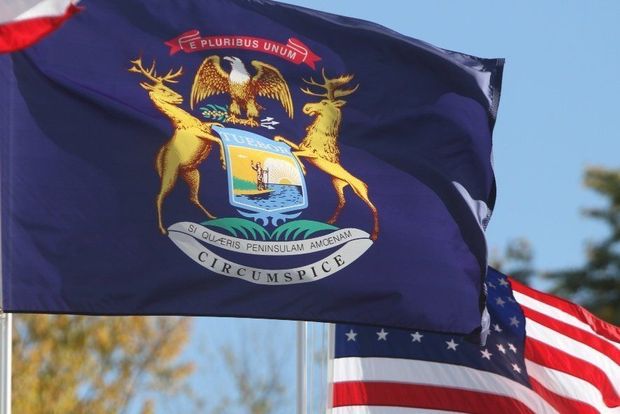
A bill to legalize online gambling passed through a Michigan House of Representatives committee Wednesday and though it will be nearly impossible for it to advance any further during this legislative session, there is some hope for the next.
The Bill, House Bill 4926, was introduced by Rep. Brandt Iden three months ago. He told Online Poker Report (OPR) in October that he wanted to see it pass the House by Thanksgiving.
“Throughout the month of October, I’m hoping to gain a lot of headway,” Iden told OPR. “If I had my way, we’ll be able to get everyone to the table and put a bill together and through the House before the Thanksgiving holiday. We’ll see how achievable it is, but that’s my goal.”
Well, it clearly wasn’t achievable, as it only just now made it through a committee and the legislative session is about to end. The good news, though, is that in Michigan, bills can carry over to the next session, so Iden will not have to start from scratch.
The bill stipulates that prospective online gambling operators would be required to pay a $100,000 licensing application fee. If granted a five-year license, the fee for the first year would be $200,000 and then $100,000 each year thereafter.
In October, Iden told OPR that the biggest challenge was arguably getting all of the state’s tribes and the three commercial casinos to all agree on the legislation. Lawmakers could always go ahead and vote for bills without the blessing of all the stakeholders, but is generally a good idea to get those who may be operating the gaming sites to be onboard.
“They’re constantly looking to expand their operations with new gamers. They realize they have generations of gamers that are going to be looking at new platforms, and if they don’t get on board they will miss bus,” Iden said to OPR.
For this Michigan House Regulatory Reform Committee vote, Iden said that the committee did meet with stakeholders the day before in order to discuss the bill. The three commercial casinos – Greektown, MGM Detroit, and Motor City – all now apparently support the legislation when they did not previously (they supported legalized online gambling, just not the bill as written.
As first reported on Twitter by Gambling Compliance’s Chris Krafcik, there were two main amendments to the bill in committee. The first requires gaming servers to be located on the property of a licensed casino. Krafcik says this is important because it may put online gambling in sync with the Michigan constitution, which says that gambling must take place at a casino. Having the servers at a casino theoretically means that online gambling is occurring at the casino, in essence a new gaming offering by existing licensed operators, rather than an expansion of gambling.
The other change is an adjustment to the tax rate. The amended bill says licensees must pay a tax of 10 percent on gross gaming revenue, down from 15 percent previously.























